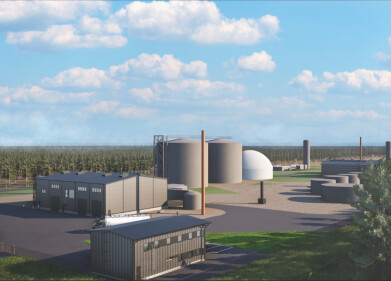Green Energy
Conservatives Win! But What Does that Mean for UK’s Green Energy?
May 15 2015
The surprise Conservative majority in last week’s general election signalled bad news for the green energy sector of the UK. Cameron and his Party’s support for shale gas extraction – namely, via hydraulic fracturing or fracking – has been well documented, while his dislike of “green crap” (as he so eloquently termed it in 2013) is also well known.
As a result, many people are fearing the worst for the future of renewable energy in Britain. “There is nothing good for green energy about the Tories’ election,” opined Tom Burke, chairman of the sustainable charity E3G. “They are certainly going to show a lot of hostility to renewables and Britain is going to get left behind.”
Wind Farms to Suffer Most
Cameron has always been vocal that he would champion renewable energy – if only it were profitable. As such, his Party’s 2015 Manifesto pledged to “halt the spread of onshore wind farms”, as if they were an unpleasant and contagious blight taking over Britain’s countryside. This will most likely be achieved by the imminent cutting off of subsidies to the wind power industry, even though it remains a cheaper alternative than most other renewable sources.
The Tories also attempted to scrap the environmentally-conscious wing of the government, the Department of Energy and Climate Change (DECC), during the previous coalition government. Nick Clegg of the Liberal Democrats blocked such a move, but with him out of the picture now, the decision could be back on the table.
Instead, the department would be merged with the Department for Environment, Farming and Rural Affairs (DEFRA), giving it less attention and coherence. Such a move could set Britain back significantly in the race to convert to renewable energy. The UK has pledged (like all other EU members states) to generate 15% of its energy from renewables by 2020. Due to hard campaigning from the Tories, no further limits have been made after this date.
How Will Britain Meet its Energy Needs?
With Cameron keen to keep his energy production “cost-effective”, wind, solar and wave power is likely to be largely ignored. Biogas could offer a potential alternative, although this too has come under a lot of criticism for its usurpation of agricultural crop land, leading to deforestation and a larger carbon footprint as a result. One solution to this problem could be the deployment of biogas derived from landfill sites and other waste materials.
Cameron has also shown himself an outspoken supporter of fracking. With five-year plans to extract the shale reserves in the North West of England already in place, it looks as though this could be the strategy to alleviate Britain’s energy problem and give the economy a shot in the arm in the process. Of course, this would do very little to help the UK meet that 15% target.
Enter Scotland: the contributor of the vast majority of renewable energy within the British Isles. The small nation has already banned fracking and continues to support green energy means; as such, it could be possible that Cameron will allow Scotland to pick up the slack from the rest of the UK, while he and his government pursue the money-laden practice of fracking.
Events
Nov 26 2024 Paris, France
Nov 27 2024 Istanbul, Turkey
H2O Accadueo International Water Exhibition
Nov 27 2024 Bari, Italy
Biogas Convention & Trade Fair 2024
Nov 27 2024 Hanover, Germany
Dec 11 2024 Shanghai, China





-as-feedstock.jpg)








